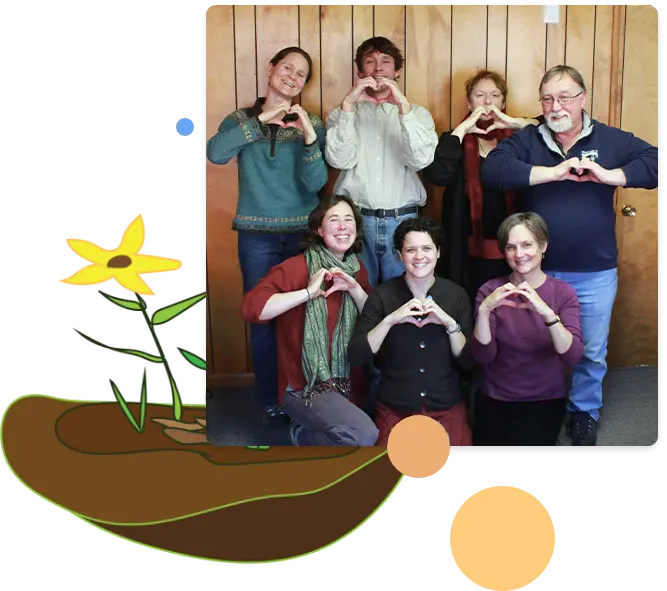What is Restorative Justice?
Restorative justice is a transformative, healing-centered approach to justice that focuses on repairing harm, rather than punishing wrongdoing. It encourages empathy and facilitates dialogue between those who've caused harm and those affected, promoting accountability and mutual growth. Restorative justice also helps those involved play an active role in solving conflicts, mending relationships, and building a more welcoming community for both the person who caused the harm and the person who was harmed. At Restorative Justice Project Maine, we use these principles to support everyone involved in finding restoration and reconnection.
Harm Repair
The journey through the criminal legal system can be overwhelming, but with RJP Maine, it's about healing and understanding before punishment. Our experienced team provides guidance and support through a variety of tailored harm repair options. This approach allows individuals in our community to reflect, take responsibility, and actively participate in solutions even before a criminal charge is brought.
Restorative Reentry
The reentry journey after incarceration can be challenging. As part of a partnership with Maine Coastal Regional Reentry Center, RJP Maine supports people through the process of exiting incarceration. Restorative programs are available to residents to help encourage positive behavior, build healthy relationships, and improve skills to build a compassionate community.

Become a Volunteer
Support the transformative power of restorative justice in your community by volunteering with Restorative Justice Project Maine. Your involvement whether as a harm repair process facilitator or mentor can make a significant difference and broaden the positive reach of restorative justice in our communities.
Our flexible volunteer roles cater to different skill sets and interests, but more importantly, they offer a chance to promote healing, understanding, and community-building. Don’t simply witness the positive impacts of restorative justice, be an active part of it. Together, let’s create a criminal legal system that truly restores.
Restorative Training
Continuing Education
Learn the tools to navigate conflicts and build healthier communities with The Foundations of Restorative Practices program.
Volunteer
Prepare as a volunteer to effectively support individuals involved in our Harm Repair program through restorative practices.
School
Equip yourself as an educator with skills to implement restorative practices in schools, fostering a positive culture.
Organizational / Institutional
Enhance your skills as a professional with restorative practices; promote understanding, repair, and growth in your field.
Support Restorative Justice Practices
Your support can make a world of difference in our mission to nurture connections, repair harm, and restore relationships through restorative practices. By donating to RJP Maine, you contribute to a more empathetic, understanding, and just society. Every contribution no matter how small helps us bring this transformative work to more communities.
